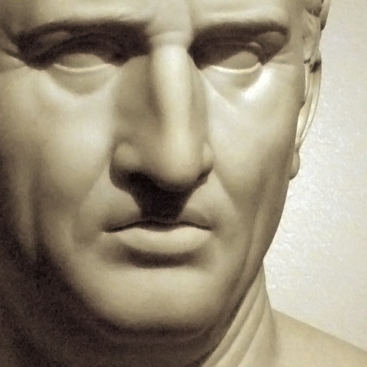In a book review of Larry Siedentop’s Inventing the Individual (which I confess I haven’t read), Roger McKinney – evidently following Siedentop – trots out the hackneyed claim that individualism is a product solely of the West, and specifically of the post-pagan West.
In response to the first claim, I’ll simply point to the many anticipations of libertarian ideas that are to be found in ancient China, particularly among the early Confucians. Ideas of liberty, equality, universal justice, and the value of commercial activity – all of which McKinney rightly associates with individualism – can also be found in ancient India and the medieval Islamic world.
But for present purposes I want to focus on what McKinney says about ancient Greece and Rome. To deny the Greeks and Romans a conception of individualism seems startling, since many of the most individualistic features of modern law have their roots in Greco-Roman traditions, and because most Greek and Roman philosophers made the pursuit of one’s own happiness and self-realisation the core of their ethical outlook. (Of course Greco-Roman individualism was not atomistic or antisocial; but that’s surely a feature, not a bug.) So what does McKinney have in mind?
To start with, he writes:
[In Morocco] cheating others is not considered unethical at all but a sign of an astute businessman. … Moroccan business ethics might be appalling to westerners, but ancient Greeks and Romans would have understood and applauded them ….
 I’m not sure how appalling such conduct is to my business ethics students, many of whom readily agree with Albert Carr’s defense of relaxed ethical standards for business life as opposed to family life. In any case, the applause from ancient Greeks and Romans would hardly have been universal. One of Rome’s leading thinkers, Marcus Tullius Cicero, wrote a whole book, De Officiis (usually translated either as On Offices or as On Duties), which is essentially a treatise on business ethics. In it he records some of the leading debates among Greek and Roman thinkers as to what sort of conduct is and is not permissible in commercial transactions. While a variety of views are canvassed, none of them fits McKinney’s description; and Cicero himself insists firmly that justice and fair dealing are owed to all human beings. (Cicero also argues in the same work that each of us has a responsibility to fulfill the demands not just of universal human nature but of our individualised nature, which certainly seems like a kind of individualism.)
I’m not sure how appalling such conduct is to my business ethics students, many of whom readily agree with Albert Carr’s defense of relaxed ethical standards for business life as opposed to family life. In any case, the applause from ancient Greeks and Romans would hardly have been universal. One of Rome’s leading thinkers, Marcus Tullius Cicero, wrote a whole book, De Officiis (usually translated either as On Offices or as On Duties), which is essentially a treatise on business ethics. In it he records some of the leading debates among Greek and Roman thinkers as to what sort of conduct is and is not permissible in commercial transactions. While a variety of views are canvassed, none of them fits McKinney’s description; and Cicero himself insists firmly that justice and fair dealing are owed to all human beings. (Cicero also argues in the same work that each of us has a responsibility to fulfill the demands not just of universal human nature but of our individualised nature, which certainly seems like a kind of individualism.)
Like Moroccans, ancient Greeks and Romans cared little for non-family members. Those “… outside the family circle were not deemed to share any attributes with those within. No common humanity was acknowledged, an attitude confirmed by the practice of enslavement.”
The attitude described here certainly existed (and continues to exist today; indeed it fairly describes u.s. foreign policy), but the suggestion that this view was all-pervasive and unchallenged in Greco-Roman antiquity is a mistake. The Cynics and Stoics defended a vision of all humanity as a single community, a cosmopolis; and even the less cosmopolitan Aristotle, who defended slavery on the basis of bullshit theories of racial inferiority, insisted that foreign races that were not inferior (and he granted that there were some) could not justly be conquered or enslaved. On this basis Aristotle condemned societies with aggressive foreign policies. Aristotle also insisted (NE 1108a9-28, 1126b19-1127a2, 1155a16-31) that we have duties of friendship toward strangers and foreigners. The legitimacy of slavery was also challenged by thinkers from Alkidamas to Zeno of Citium.
For the ancient Romans and Greeks society consisted of a collection of extended families. The heads of the families, including family-based clans and tribes, held all the power and made all of the decisions. Only the heads of families could become citizens in the polis.
Sure, for the most part – though again hardly confined to antiquity, since even the supposedly egalitarian John Rawls in the first version of his 1971 Theory of Justice had “heads of families” as the contracting parties behind the Veil of Ignorance. But likewise again, this perspective was not exactly unchallenged; Plato famously advocated an independent political role for women in his Republic, as well as the abolition of the family; and similar views were defended by the Cynics and early Stoics (and arguably Xenophon to some extent).
Antiquity had no notion of the powers of the government being limited by the rights of individuals, even for family heads.
The entire Athenian legal system was a vast contrivance to limit governmental power. Ancient constitutional thought focused heavily on the idea of structuring the balance of power between different classes so as to prevent any one class from being in a position to impose injustice unchecked on another. And the idea that individuals have claims of justice that states are bound to respect was defended by nearly every ancient political theorist, including Aristotle and Cicero. (For Aristotle, see Fred Miller’s book Nature, Justice, and Rights in Aristotle’s Politics; for Cicero, see his discussion of natural law in De Republica and De Legibus.)
Consider also Pericles’ funeral oration, as recorded or invented (or some of each) by Thucydides, in which tolerance and respect for individual choice are lauded: “in our private business we are not suspicious of one another, nor angry with our neighbor if he does what he likes.” Of course Athens did not live up consistently to this ideal (nor do modern so-called liberal societies live up to it today), but the ideal was clearly recognised and formulated.
The ancients had no concept of the equality of man, either. Even for Plato and Aristotle, a natural hierarchy of humanity existed, much like the caste system of India. Some were born to rule, others to serve or fight.
Certainly Plato and Aristotle believed in political hierarchies based on allegedly natural inequalities. But they were not the only political thinkers of Greco-Roman antiquity. The Cynics and early Stoics (such as Zeno of Citium) defended a vision of society in which all hierarchical distinctions of rulers and subjects, masters and slaves, males and females would be abolished. Some Epicureans (like Diogenes of Oenoanda) held similar views. (And turning our gaze momentarily eastward: the caste system in India had its early critics as well, notably among Buddhists.)
Politics and war became the noblest occupations while commerce was held in contempt.
Held in contempt by whom? Successful merchants enjoyed enormous social prestige in Greece and Rome; and Hesiod’s praise of industry and commercial competition is justly famous. As for the philosophers, Plato and Aristotle did disparage commerce (though Aristotle disparaged warfare as well – as did the Epicureans), but again, they were not the only philosophers in classical antiquity. The Stoics in particular were vigorous defenders of commerce, as was Xenophon; and then of course there’s Cicero, whose book on business ethics I’ve previously mentioned. I challenge anyone to read Cicero and come away with an impression of a thinker who is valorising warfare and downgrading commerce. Individualism may not have reigned supreme in antiquity (nor does it today), but its basic concepts were formulated and defended by a good many influential thinkers.
For more on classical Greek and Roman individualism, see my various discussions here.


